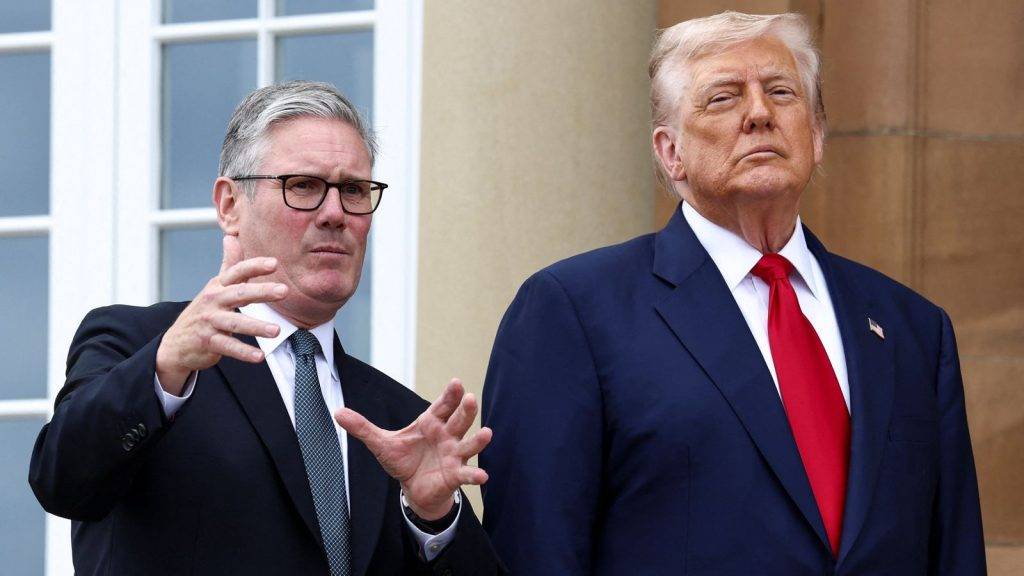Cliff Notes
- Sir Keir Starmer faced Donald Trump during a televised encounter, navigating significant political differences while managing awkward moments, including Trump’s remarks about London mayor Sadiq Khan.
- Trump announced pressure on Vladimir Putin for a ceasefire and addressed concerns regarding Gaza, giving Starmer some policy wins despite the tension.
- The meeting highlighted the power dynamics, with Starmer appearing to endure the encounter for the potential benefits of being associated with the U.S. president.
Starmer ran the gauntlet with Trump but just about emerged intact
When TV cameras are let in to film world leaders meeting in person, the resulting footage is usually incredibly boring for journalists and incredibly safe for politicians.
Not with Donald Trump.
Sir Keir Starmer ran the gauntlet on Monday. Speaking ahead of his meeting with Trump, Sir Keir described “images of starving children” in Gaza as “revolting”.
Sir Keir Starmer has presented a European-led peace plan for Gaza to Donald Trump, during a meeting in Scotland with the US president. And even forced the presidents hand to acknowledged that “the children in Gaza looked like they were starving”
Put through a total of almost 90 minutes of televised questioning alongside the American leader, it was his diciest encounter with the president yet.
Starmer claims policy wins
For a start, he can claim substantive policy wins after Trump announced extra pressure on Vladimir Putin to negotiate a ceasefire and dialled up the concern over the devastating scenes coming from Gaza.
There were awkward moments aplenty though, especially when the President said, “I don’t like your mayor” (referring to Sadiq Khan).
Liberal Democrat Leader Sir Ed Davey warned the prime minister against accepting “warm words” from an “unpredictable” US president.
“In both Ukraine and the Middle East the situation is utterly intolerable, and the prime minister needs to work with our allies to put a proper plan in place, so that we can lead even if Donald Trump continues to refuse to act,” Sir Ed said.


